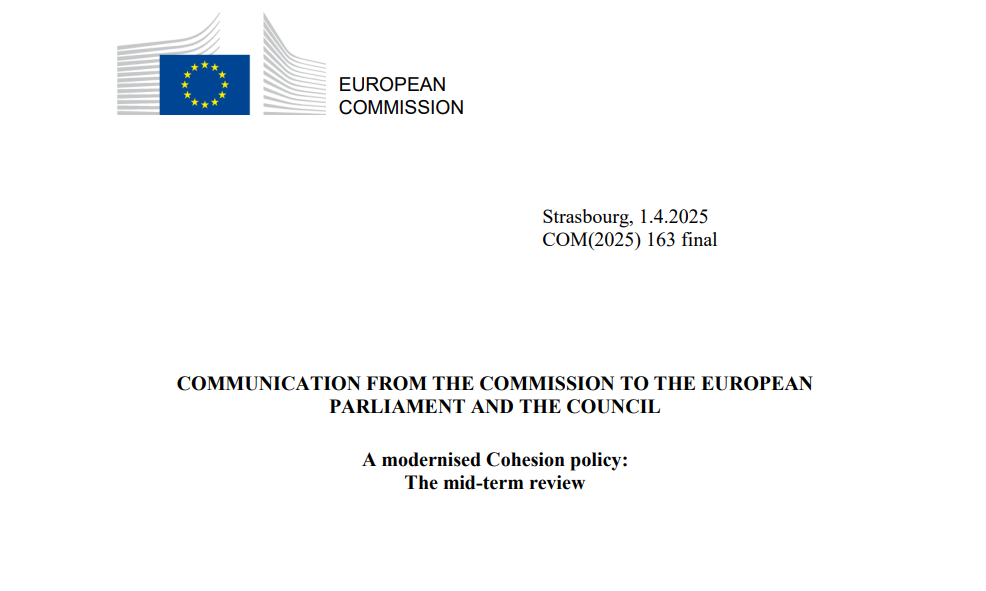Document: A modernised Cohesion policy: The mid-term review
Published by: European Commission
Date: 01/04/2025
On April 1st, 2025, The European Commission has published a communication on its mid-term review of the Cohesion Policy, to “maximise its contribution to the current and emerging political priorities of the Union and increase its impact on economic, social and territorial cohesion”, and to prepare its shape in the new multi-annual financial framework.
The good news for us it that LEADER is explicitly acknowledged in the document as a key tool to involve local actors in rural development, reaffirming its place within the CAP Strategic Plans.
Many regions in Europe face challenges related to stagnant or declining growth and prosperity, impacting on the quality of local services and opportunities for citizens. The Commission and Member States together should strive for all citizens to have an effective right to stay in the place they call home by ensuring availability of good jobs, and access to basic public services such as education and health. This is particularly important in nonurban territories (rural, inner and remote areas) and in the areas identified as falling in a Talent Development trap. In this respect, a stronger complementarity between cohesion policy programmes and the LEADER initiative under the CAP, as well as actions to promote sustainable tourism, would help local communities to find local solutions, as also highlighted in the recent Vision for Agriculture and Food. Actions would facilitate sectors beyond farming and fisheries to foster other business and economic opportunities, while managing migration flows also to counter de-population (p 16.).
However, the review stops short of providing new resources for rural development or recognising CLLD as a broader, cross-fund approach. And at a time when rural areas face increasing challenges — from demographic decline to climate resilience — this lack of ambition underscores the need for grassroots organisations to continue making the case for territorial, participatory approaches.
This is precisely what our network has argued in our recent reflection paper (“Renewed Rural Policies: A Future for Rural Europe”, March 2025), where we call for a stronger integration of LEADER and CLLD within the Cohesion Policy, and for post-2027 frameworks to finally embrace simplified, multi-fund, place-based solutions that empower local communities.
The Commission’s mid-term review highlights the growing importance of territorial cohesion and social inclusion, but does not yet deliver the tools to realise them on the ground. For us, this is a strategic opening. As discussions continue on the future of EU funding after 2027, we must ensure that community-led local development is not just mentioned, but mainstreamed across policies.

